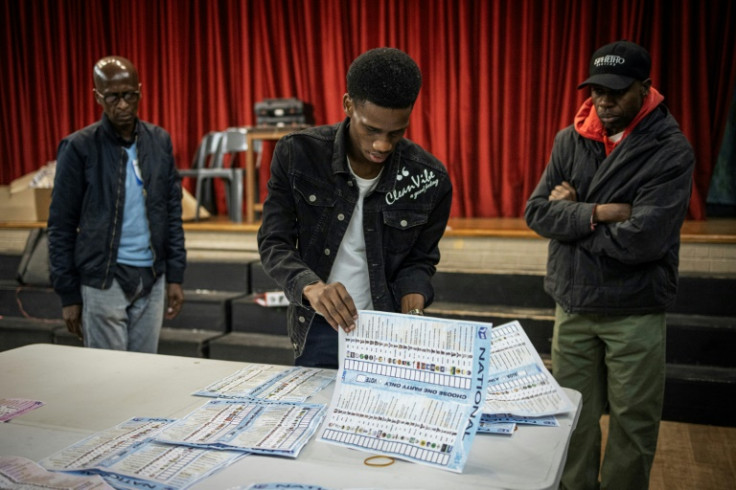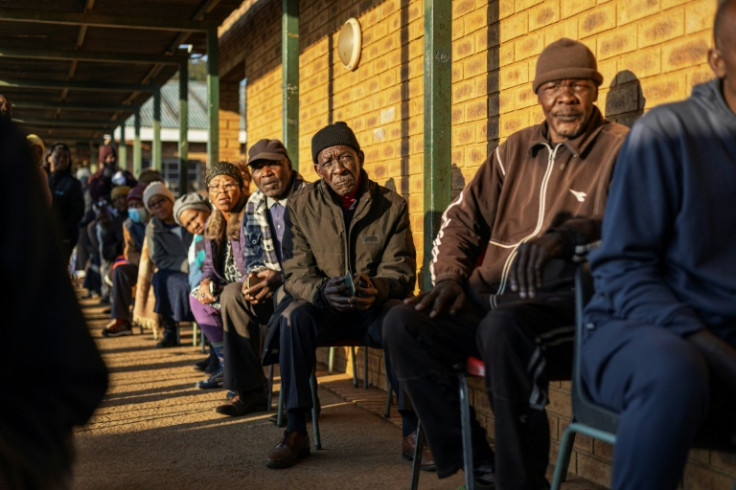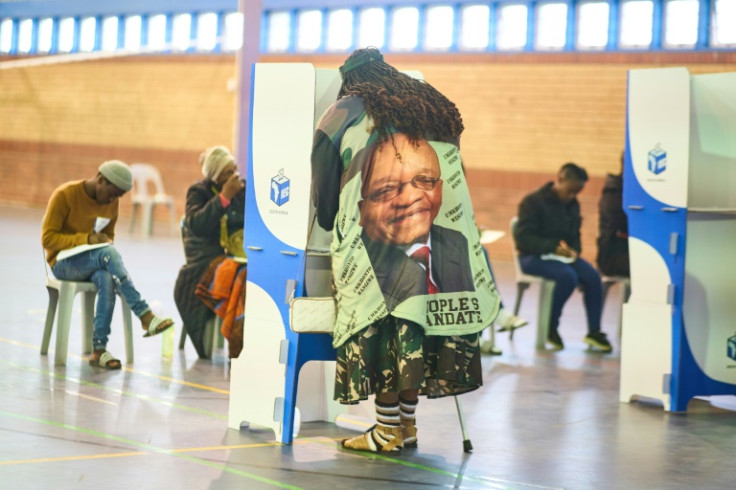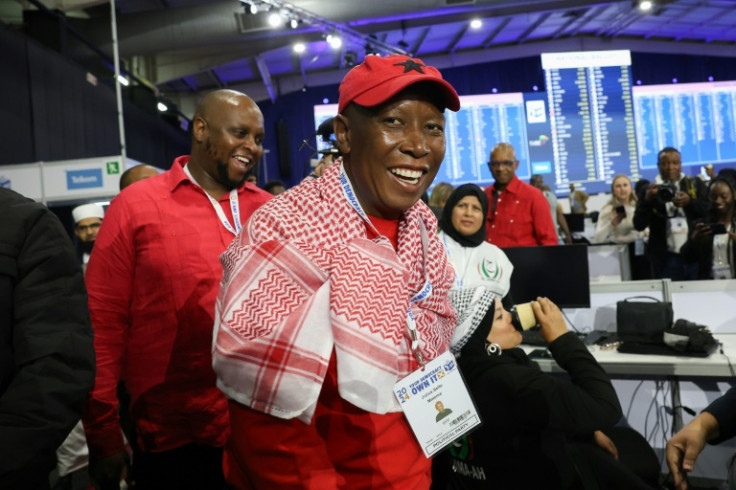South Africa's ANC Loses Majority, Needs Allies

South Africa's ruling ANC faced a search for allies to help it form a new government Saturday after it lost its three-decade-old absolute majority in a watershed election.
With 99.62 percent of the votes from Wednesday's election counted, President Cyril Ramaphosa's African National Congress had only 40 percent, a catastrophic slump from the 57.5 it won in 2019.
This marks a historic turning point for South Africa as the party has enjoyed an absolute majority since 1994, when liberation hero Nelson Mandela led the nation out of white-minority rule and into democracy.
The ANC must now either negotiate a coalition government or at least persuade other parties to back Ramaphosa's re-election in parliament to allow him to form a minority administration reliant on other groups for support to pass budgets and legislation.
"We have been talking with everybody even before the election," the ANC's deputy secretary general Nomvula Mokonyane said, saying the party's NEC decision-making body would meet to decide on a course of action after final results are announced.
As votes continued to be validated, data from the Independent Electoral Commission (IEC) showed the centre-right Democratic Alliance (DA) held second place with 21.71 percent, slightly up on its 20.77 showing in 2019.
The party governs Western Cape province and has promised a free-market agenda at odds with the ANC's left-wing traditions.
Asked about the chances of a coalition with the ANC, Helen Zille, the DA party chairwoman, said: "Negotiations haven't started but some channels have been opened, individuals talking to individuals."
She also did not rule out allowing the ANC to attempt to rule alone, telling AFP: "A minority government would be something completely new in South Africa but it is an option."
But it was not a surge by the DA that cut into the ANC's vote share.
In third place was former president Jacob Zuma's uMkhonto weSizwe (MK) on 12.6 percent, a surprise score for a party founded just months ago as a vehicle for the former ANC chief.
The radical leftist Economic Freedom Fighters (EFF), led by former ANC youth leader Julius Malema, was in fourth with 9.4 percent.
Malema and Zuma are former ANC members and some observers have suggested they would be more natural partners for the ruling coalition, a prospect the DA has branded the "Doomsday Coalition".
But other analysts, including author Susan Booysen, said the EFF was perceived as "too erratic" and "unpredictable" in its demands.
And the rift between Ramaphosa and Zuma -- who has long been bitter about the way he was forced out of office in 2018 -- was "too far reaching" to mend, she said.
MK spokesman Nhlamulo Ndhlela seemed to agree. "We will engage with the ANC but not the ANC of Cyril Ramaphosa," he said.
Any coalition partner should be willing to amend the constitution to enact radical reforms and grant Zuma, who has been declared ineligible over a contempt of court conviction, a pardon, he said.
Malema said his EFF was ready to talk about a coalition, but would insist on land reform to take South Africa's vast farms, many of them owned by members of the white minority, into public ownership.
"We are not desperate, and we will not compromise on our demands and principles," he told reporters.
"There are certain fundamental things which are deal breakers. We will approach them with open minds.
"We want to work with the ANC. If there is one party we can work with, it's the ANC because when the ANC is compromised, they are not arrogant, you can work with them."
Among those most pleased with the results was Gayton McKenzie, leader of the far-right Patriotic Alliance (PA) which won a surprising two percent of the vote, with a hard stance against immigration.
A convicted robber turned politician, McKenzie quipped political opponents who used to call him an "ex-con" will now have to address him as "honourable", but said he was open to talks with all parties.
Other groups had already reached out, asking to "meet with us from tonight".
"We will work with any party, we've got no preference," he said. "But one thing that for us is a non-negotiable. Don't waste our time... if you want illegal foreigners to stay."
He said other parties were disingenuous to suggest they would not work with Ramaphosa or other individuals, and the PA would take a more pragmatic approach. "When power goes you work with everyone," he said.



© Copyright AFP 2025. All rights reserved.





















